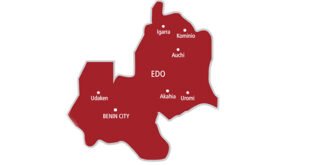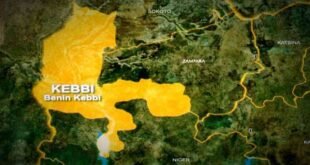Justice Yellin Bogoro of the Federal Supreme Court sitting in Lagos on Tuesday, July 16, dismissed a lawsuit filed by a Lagos-based lawyer, Malcom Omirhobo, challenging the use of Arabic inscriptions on Naira banknotes.
According to the judge, “the Central Bank of Nigeria (CBN) is empowered by Section 53 (1) of the Banks and Other Financial Institutions Act (BOFIA) to print, design and issue currency and imposes the need to show bad faith before an action can be brought to challenge the act or omission of the Federal Government or the Supreme Court.”
The court further ruled that the case challenging the Arabic inscriptions on the Naira banknotes failed to prove that the CBN’s powers were exercised in bad faith.
Omirhobo filed the suit against the CBN in January 2020 alleging, among other things, that Arabic is not one of the four official languages of Nigeria, namely English, Yoruba, Hausa and Igbo. In the suit, the lawyer argued that Arabic is not an indigenous language of Nigeria and having it on our country’s currency violates some provisions of the Constitution.
The CBN, in its response, had filed a preliminary objection arguing that Omirhobo had no locus standi to present the matter. The bank also filed a defence.
In ruling on the case, Justice Bogoro first dismissed the preliminary objection of the CBN and held that Omirhobo had locus standi to institute the action as a taxpayer. The court also held that public interest actions should be encouraged.
However, the court found that Omirhobo had failed to prove that CBN had acted in bad faith and consequently dismissed the suit.
In his reaction to the ruling, Omirhobo said he had requested a certified copy of the ruling and would examine it to decide his next course of action.
The lawyer argued that the court held that Arabic is not the official language of Nigeria and suggested that for Nigerians to coexist in harmony, “perhaps it is time for the Central Bank of Nigeria and the Federal Government to remove the Arabic writing from the 200, 500 and 1,000 naira notes, as it has been removed from the 5, 10, 50 and 100 naira notes.”
 JamzNG Latest News, Gist, Entertainment in Nigeria
JamzNG Latest News, Gist, Entertainment in Nigeria









